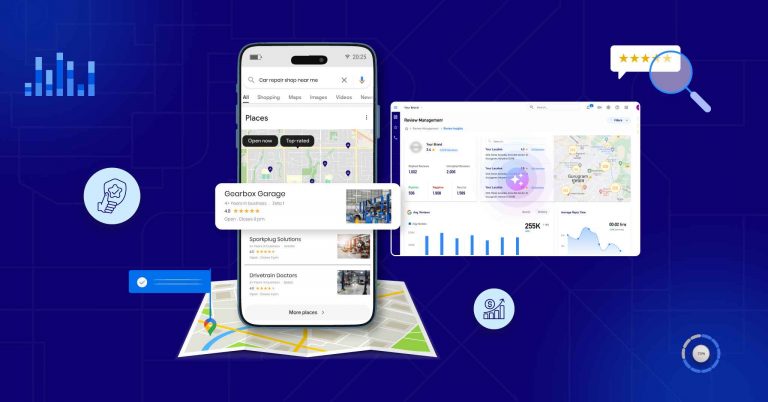An incorrect address or outdated hours on Google listing, or a wrong phone number on a directory—these might sound like minor oversights, but in reality, they can cost businesses thousands in lost opportunities every year. Customers expect accuracy at every touchpoint, and when they do not find it, they lose confidence and quickly move on to a competitor who appears more reliable. For multi-location businesses, the stakes are even higher, as errors multiply across branches and platforms. This is no longer just about convenience; it is about trust, customer experience, and the bottom line.
This is where local listings management software becomes indispensable. With the deployment of such software, ensuring consistent, accurate, and up-to-date information across dozens of directories helps businesses protect their credibility, improve search rankings, and attract more customers.
Accurate listings are often the first impression customers have of your business. When information is inconsistent or incorrect, it creates barriers to discovery and erodes trust.
Here are the core reasons why accuracy in local business listings management is critical:
Customers use search engines to make immediate decisions. A user looking for a nearby pharmacy or restaurant often intends to visit right away. If your listing shows the wrong hours or phone number, they may not give you a second chance. Inaccurate listings create frustration and push customers toward competitors who appear more dependable.
Search engines rely on consistent NAP (Name, Address, Phone number) data to validate a business’s legitimacy. Even small discrepancies across platforms can weaken your search signals. Accurate listings increase your chances of ranking in the Google Local 3 Pack, one of the most visible spots for local intent-driven searches.
Customers equate accuracy with professionalism. If your details are mismatched across different directories, it signals carelessness, regardless of the quality of your products or services. Over time, these inconsistencies can harm not just visibility but also reputation.
Key reasons as to why accuracy matters:
Accuracy builds the foundation for visibility and trust. Yet maintaining it across multiple platforms is far from easy, which is why many businesses struggle.

Maintaining accuracy across platforms is more difficult than it appears. Each directory has its own processes and requirements, and without a centralized solution, mistakes spread quickly.
Here are the most common challenges businesses encounter:
These challenges make one thing clear that manual processes cannot keep pace with customer expectations. Businesses need smarter tools that centralize, simplify, and scale accuracy.
Local listings management software addresses these problems at their core. It replaces fragmented, manual workflows with centralized systems that deliver consistency, efficiency, and scalability. Here is how it supports growth and visibility:
Instead of logging into multiple directories separately, one change made in the software instantly updates across all connected platforms. This saves hours of repetitive work, reduces the chance of human error, and ensures every customer sees the same accurate details, no matter where they look.
Search engines reward consistency. By keeping listings aligned across directories, citation signals are strengthened, which improves local search rankings. Appearing in high-visibility placements such as the Local 3 Pack or “near me” searches directly increases website clicks, calls, and foot traffic.
Franchises and multi-location businesses often struggle to keep details uniform. A local listings management tool ensures that every branch has the correct hours, address, and phone numbers while still allowing for location-specific updates when needed. This maintains a unified brand identity without losing local relevance.
As businesses expand, manual updates quickly become unmanageable. Automation allows companies to manage hundreds of locations with the same effort it would take to manage a handful. This reduces operational costs and ensures accuracy is never compromised, even as new branches are added.
Customers expect accurate and immediate information. When listings provide correct details for directions, contact, and hours, the journey from search to purchase is seamless. This creates positive experiences, builds trust, and increases the likelihood of repeat business and recommendations.
Inaccurate listings do more than confuse customers—they reduce visibility, create missed opportunities, and weaken trust. Customers depend on accurate information to make quick decisions, and even one outdated entry can push them to a competitor. Managing listings in a structured way ensures stronger search presence and reliable customer experiences.
For multi-location businesses, the challenge is keeping every detail consistent at scale. This is where professional support and the right tools matter, helping brands maintain accuracy across platforms while protecting their reputation.
At SingleInterface, we bring together technology and expertise to keep your business visible. Ready to ensure customers always find the right information? Book a demo today.